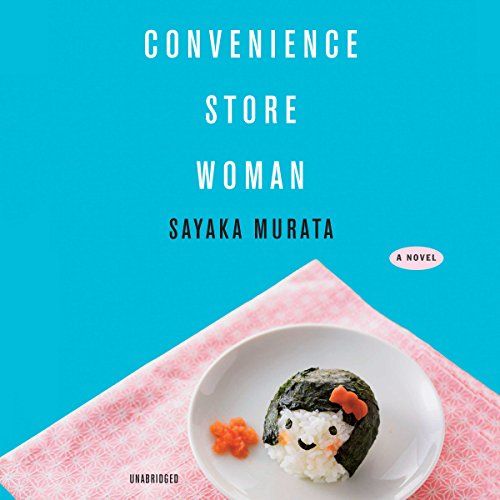Convenience Store Woman

This 2016 novel by Sayaka Murata tells the story of Keiko Furukara. Keiko works in a convenience store and eschews the "appropriate" ambitions that her society believes she should pursue: Marriage, family life, and other markers of adult success. Her comfort and happiness with a simple routine upset her family and coworkers who are convinced that Keiko should want more. Or, at least, something else.
From the publisher:
Keiko is the perfect employee - never late, always worrying about how to maximize sales, brilliantly conscientious, and highly energetic. Managers come and go but Keiko remains at the store for 18 years. It's almost hard to tell where the store ends and she begins. At 36, Keiko is very happy in her life, but the people close to her, from her family to her coworkers, pressure her to settle down with a man and to find a proper profession. Eventually, she is pushed to make a huge change. The static world of Keiko is upended - but will it be for the better?
The writing in this novel is characterised by minimal or completely absent emotional content. Even when there is conflict between Keiko and her coworkers, friends, and family, the style of prose reflects her own analytical, distant stance from the other characters. Nancy Wu's excellent narration in the audiobook carries this tone well and enhances the peculiar nature of Keiko's internal monologue and her interactions with others. More than once, Keiko reflects that she was not initially certain as to how to respond in social situations but, through observation and a bit of trial and error, she has learned what her coworkers expect. She endeavours to respond as they anticipate she will so as to minimise any awkwardness between them.
While not described as such explicitly, Keiko's behaviours and internal monologue put one in mind of the experiences described by many neurodivergent people. A lack of "natural" social acclimation, a tendency toward literalism and analysis over nuance and emotional response, an uncommon comfort with solitude and routine, and so on. My own growing familiarity with language for and diversity of neurodivergent experience led me to think more than once while reading this book "Oh yes! What a very good description of that sort of situation! Is that not how everyone experiences such things?"
Keiko's comfort with routine, a simple lifestyle, and lack of ambition for "more" of the accomplishments and milestones her family think are important is a source of friction throughout the book. Her lack of interest in conforming to the societal norms valued by her parents and sister give them cause to worry for her, both as regards her future security and her current state of mind. Keiko, of course, sees no inherent value in a marriage, larger home, or the other milestones of success the people around her believe are important.
Convenience Store Woman is a fascinating journey through the psyche of a young woman who lives as an outsider in the society into which she was born. Keiko Furukara refuses to subscribe to the norms reinforced all around her: family structures, capitalist ambition, or "keeping up with the Joneses". She enjoys the corporate culture of her job because it provides a comfortable, predictable routine and structure to her life and this produces value. Keiko's experience as a divergent thinker and personality in contemporary Japanese society, whether by nature or design, gives a glimpse into one journey down a path seldom traveled.
I strongly recommend Convenience Store Woman by Sayaka Murata, especially the audiobook format with Nancy Wu narrating. Well worth the time to read.





